By: Kumudika Perera
RTI can be a tool for greater transparency and accountability in the EIA process to facilitate public participation effectively.
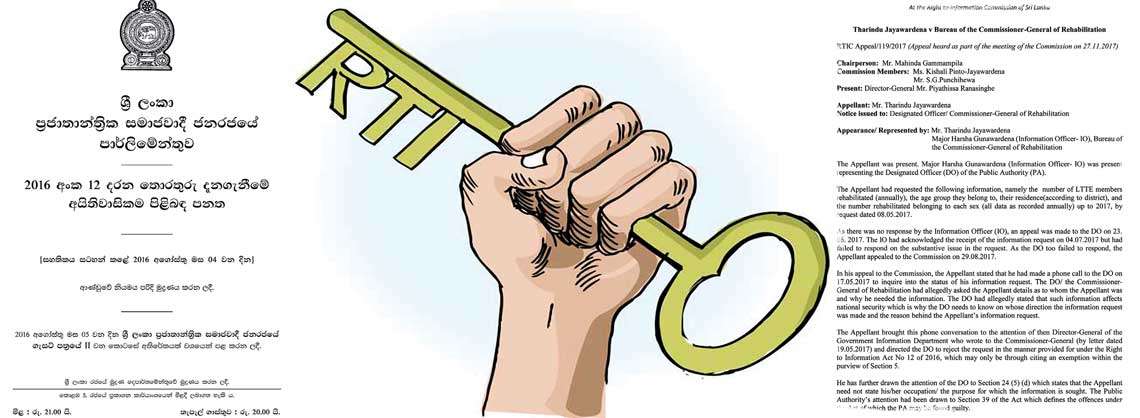
In EFL’s previous blogs, we have discussed how and why public participation is vital in the process of Environmental Impact Assessment (EIA). Information fed to the public domain is thus important as information increases the effectiveness of public participation and is viewed as a prerequisite for a successful democracy.
In Sri Lanka, the Right to Information (RTI) was guaranteed as a fundamental right via section 2 of the Nineteenth Amendment to the Constitution of The Democratic Socialist Republic of Sri Lanka (1978 as amended), by inserting Article 14A into the Chapter on Fundamental Rights. The Right to Information Act, No. 12 of 2016 (RTIA 2016) provides grounds on which access to information may be denied, appointment of information officers, establishment of RTI Commission and the procedures connected therewith. This blog discusses how RTI can be a tool for greater transparency and accountability in the EIA process to facilitate public participation effectively, and few obstacles it may encounter.
Interdependence of Human Rights and Environmental Justice
Human rights and the environment are intertwined; human rights cannot be enjoyed without a safe, clean, healthy and sustainable environment; and sustainable environmental governance cannot exist without the establishment of and respect for human rights.
Environmental Rights are of two components namely: Substantive Rights (fundamental rights) and Procedural Rights (necessary to achieve substantive rights). While ‘Substantive Rights’ include the right to a safe climate, clean air, clean water, non-toxic environments and healthy ecosystems etc., ‘Procedural Rights’ include three fundamental access rights. They are: access to information, public participation and access to justice which have also found their way into the Sri Lankan legal system through Principle 10 of the Rio Declaration on Environment and Development 1992.
The Framework Principles on Human Rights and the Environment 2018 identifies some of the procedural rights that underpin the relationship between environment and sustainable development as follows.
- Access to environmental information – Principle 7
- Public participation – Principle 9
- Access to effective remedies – Principle 10
- Special measures for vulnerable peoples – Principle 14
- Compliance with obligations for indigenous people – Principle 15
- Protection of environmental defenders – Principle 4
- Provisions for exercise of these rights – Principle 5

These obligations stipulate that it is the obligation of the State to provide an appropriate safe and enabling environment and opportunities for the exercise of these rights. Similarly, the Sustainable Development Goal 16 is devoted to promote peaceful and inclusive societies for sustainable development, access to justice and establishment of effective, accountable and transparent institutions at all levels, participatory and representative decision making, strengthening participation, and ensuring public access to information etc. Hence, environmental rule of law and access to information to achieve environmental justice are deemed as vital components of realising this goal.
Nature of RTI
RTI is based on three key principles.
- State needs to understand that RTI is to be guided by maximum disclosure: Giving information as much as possible, whenever possible.
Section 6 of RTIA 2016 is an example for this proposition, as even though the requested information falls under section 5 of the Act and cannot be provided, but if the information is reasonably severable, then information that can be provided has to be provided.
- Necessity of proactive disclosure: Public Authority does not have to wait for a request or an interference to disclose information.
Section 9 of RTIA 2016 mandates a Minister to provide all information available with him to the public about initiation of projects, 03 months prior to their commencement. If it is an urgent project, information has to be provided one week prior to the commencement of such a project, and reasons for urgency have to be notified to the RTI Commission.
- Preserve credibility: Provide surrounding information related to the public request.
Protection of honest officials who are accountable and transparent within the RTI framework is important as RTI is not only about exposing corruption, it is also about protecting officers who are doing their jobs right. (See also RTIA 2016, section 40.)
How can RTI help in EIAs
Subject to the provisions of section 5 of this Act, every citizen shall have a right of access to information which is in the possession, custody or control of a public authority according to section 3 of RTIA 2016.
- Definitions – Section 43 of RTIA 2016
RTIA 2016 defines ‘information’ as including any material recorded in any form and provides examples. The definition of ‘public authority’ (PA) captures any governmental institution (Ministry, Department, Public Corporation, Local Authority, certain companies, a body created by a Provincial Council, Higher Education Institution), private entity or organisation carrying out statutory or public function or service, private educational institutions, non-governmental organisations substantially funded by the government or international organisations and all courts and tribunals.
A ‘citizen’ is defined as including a body whether incorporated or unincorporated, if not less than three-fourths of the members of such a body are citizens.
Therefore, it is clear how vast the accessible information is and the public needs to be informed of their right to know and be assisted to reap the benefits of the process better.
The RTI Procedure
Section 24 onwards of the Act depicts the procedure for any citizen to obtain information held by a PA. The request for information has to be in writing. The following graphic would aid you to understand the process.

- Why use RTI for EIA Process
As stated previously, the public can engage in effective decision-making regarding prescribed projects only if they are provided with full and accurate information by the authorities. RTI acts as a tool to bring the inaccessible information in the hands of PAs to the grasp of the citizens, enabling the public to deliberate on the available information and request further information where necessary.
Simply, it makes the project approval process of the Project Approving Agencies (PAA) which are State Agencies that are also PAs, subject to public scrutiny. The public, empowered by RTI, is not a mere party that comments, but a stakeholder that holds the PAAs accountable and keeps check on their activities. Moreover, the ability of the public to engage with the PAAs closely also makes the EIA process transparent and public-friendly. When the public is aware about the real circumstances of the projects, projected impacts and then participates to comment, it will uplift the legitimacy of the decisions made.
However, grounds to deny access to information are stated under section 5 of RTIA 2016. A few of them are: when the information which is requested is not for public interest and is a violation of privacy, disclosure would undermine public security, would prejudice Sri Lanka’s international relations, would prejudice the economy, would harm the competitive position of a third party (unless PA is satisfied that the larger public interest warrants the disclosure), would disclose confidential communications, would prejudice crime prevention, would disclose identity of informants, would disturb the impartiality of courts, where it would infringe Parliamentary or Provincial Council privileges, and where a cabinet decision has not been taken on the related cabinet memorandum.
Despite the objections that the PA would resort to, the aggrieved citizen can use the appeal procedure provided under Part VI of the Act which strengthens the ability of the citizens to obtain information without facing bureaucracy and arbitrary information denials by public officers.
Few Challenges faced by RTI
Developing countries in the Post-Pandemic world are hardly surviving due to many reasons including lack of foreign revenue sources and Sri Lanka is no exception. With the government’s idea of a booming industrialised and developed country as soon as their plans could be rushed into motion, holding the PAs accountable for the environmental damage and their massive development projects would be difficult. Similarly, availability of information would depend on the political will of the governing bodies.
Likewise, firstly, preserving the independence of the RTI Commission is a challenge itself.
‘The law was drafted so that it setup an independent oversight agency that does not operate through executive fiat or executive will. Members were appointed not solely through political appointments through the Executive bill but through a nomination process. There were civil society organisations making nominations, media and the Bar Association. It was the nominees from those organisations that were listed and then sent to the President who then made the appointments.’
But the Twentieth Amendment to the Constitution, ‘basically vested all powers in the Presidency’ and how this would affect the nomination of commissioners when the terms of current commissioners expire in September 2021 is yet to be seen.
Secondly, a conflict of interest lies in the fact that the nodal agency, the Ministry of Mass Media channels money to the RTI Commission even though it is a PA under the Act and is subject to the oversight of the RTI Commission. Lack of adequate independent resources to the RTI Commission is hence a problem.
Thirdly, the RTI Commission is not empowered to impose penalties for a PA’s non-compliance. Section 39 of the RTIA 2016 empowers the RTI Commission to file suit in Magistrate’s Court against any personnel who does not comply with the law and the court could impose a monetary fine and or imprisonment. Scholars argue that when the Department of Customs and Department of Inland Revenue etc, could impose penalties, why the same powers cannot be given to the RTI Commission. Furthermore, it would also increase efficiency in the RTI process than piling up cases in courts.

Conclusion
‘The fact that 85% of the Right to Information Commission’s decisions from 2017-2019 has been to release information, in full or in part, has been noted by UNESCO in its global 2020 report to the United Nations’ is praiseworthy as it upholds the democratic rights of the citizens.
‘Right to access information, participation in decision-making, and access to justice are found in both environmental and human rights instruments, and have been interpreted under both regimes to provide broad protections for environmental interests.’ Therefore, fortifying and enforcing RTI is imperative if Sri Lanka is to achieve sustainable development, backed with public approval and well-calculated EIAs; enhancing the rule of law and environmental conservation.
List of References
- Haadiyah Marikar – RTI: Rocky road to Sri Lanka’s new transparency culture (https://www.dailymirror.lk/article/RTI-Rocky-road-to-Sri-Lanka-s-new-transparency-culture-128574.html)
- Kamanthi Wickramasinghe – RTI, its gains and priorities for the future (https://www.dailymirror.lk/news-features/Rti-its-gains-and-priorities-for-the-future/131-211777)
- Lisa F. Odparlik and Johann Köppel – Access to information and the role of environmental assessment registries for public participation (https://www.tandfonline.com/doi/full/10.1080/14615517.2013.841028)
- Muttukrishna Sarvananthan – The Right to Information Act and its discontents (https://www.dailymirror.lk/111234/The-Right-to-Information-Act-and-its-discontents)
- ‘Sri Lanka’s Democratic Institutions and a Global Nod for RTI’ – (https://www.dailymirror.lk/opinion/Sri-Lankas-Democratic-Institutions-and-a-Global-Nod-for-RTI/172-202967)
- United Nations Environment Programme – Factsheet on Human Rights and the Environment (https://wedocs.unep.org/bitstream/handle/20.500.11822/9933/factsheet-human-rights-environment.pdf?sequence=1&isAllowed=%20)
- United Nations Environment Programme (UNEP) and UN Economic and Social Commission for Asia and the Pacific (ESCAP) – An Assessment of Access to Information, Public Participation and Access to Justice in Environmental Decision-Making in Asia-Pacific (https://wedocs.unep.org/bitstream/handle/20.500.11822/36334/AIPP.pdf?sequence=3&isAllowed=y)
(This blog was written on: 21/ 07/ 2021)

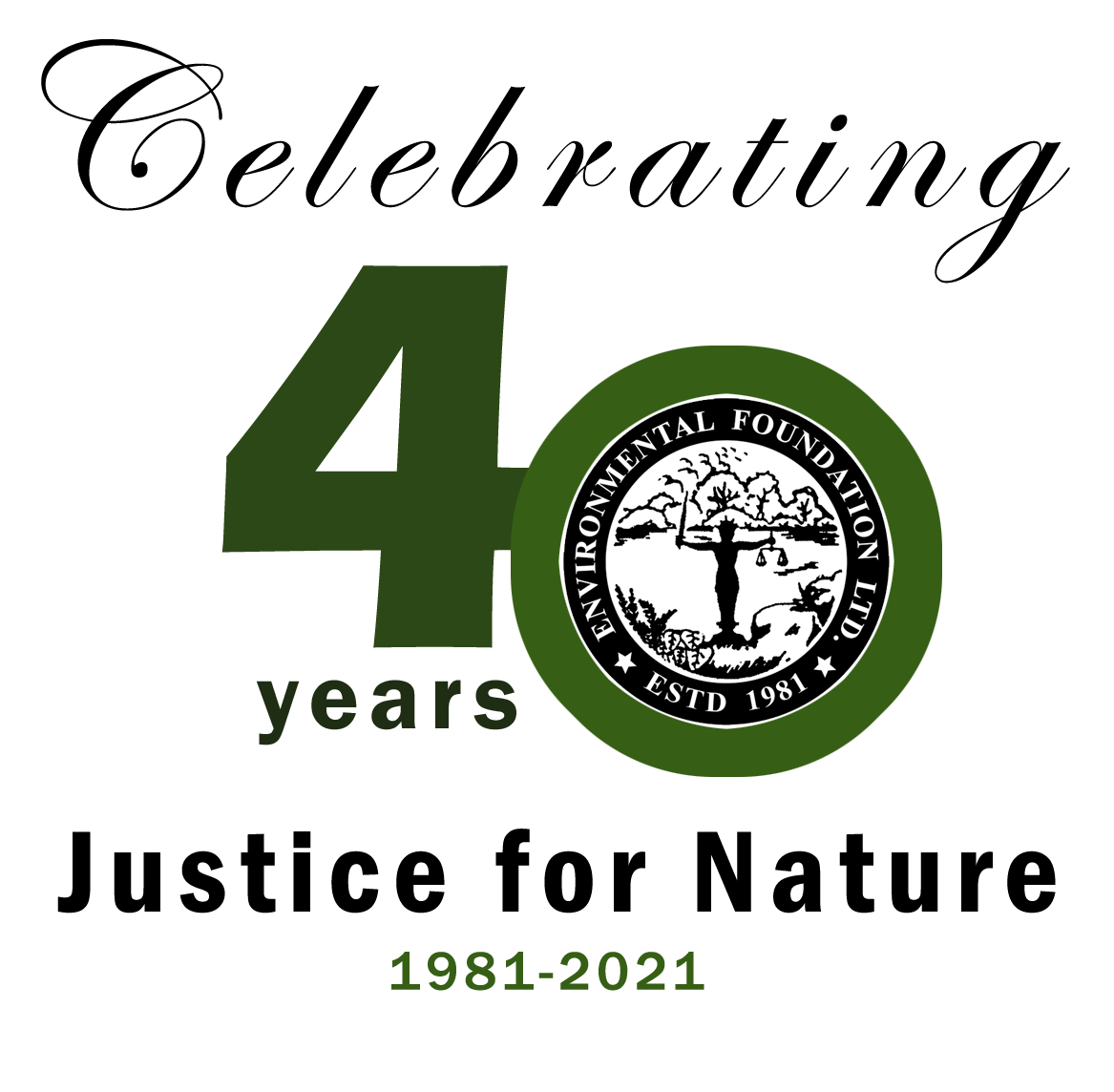
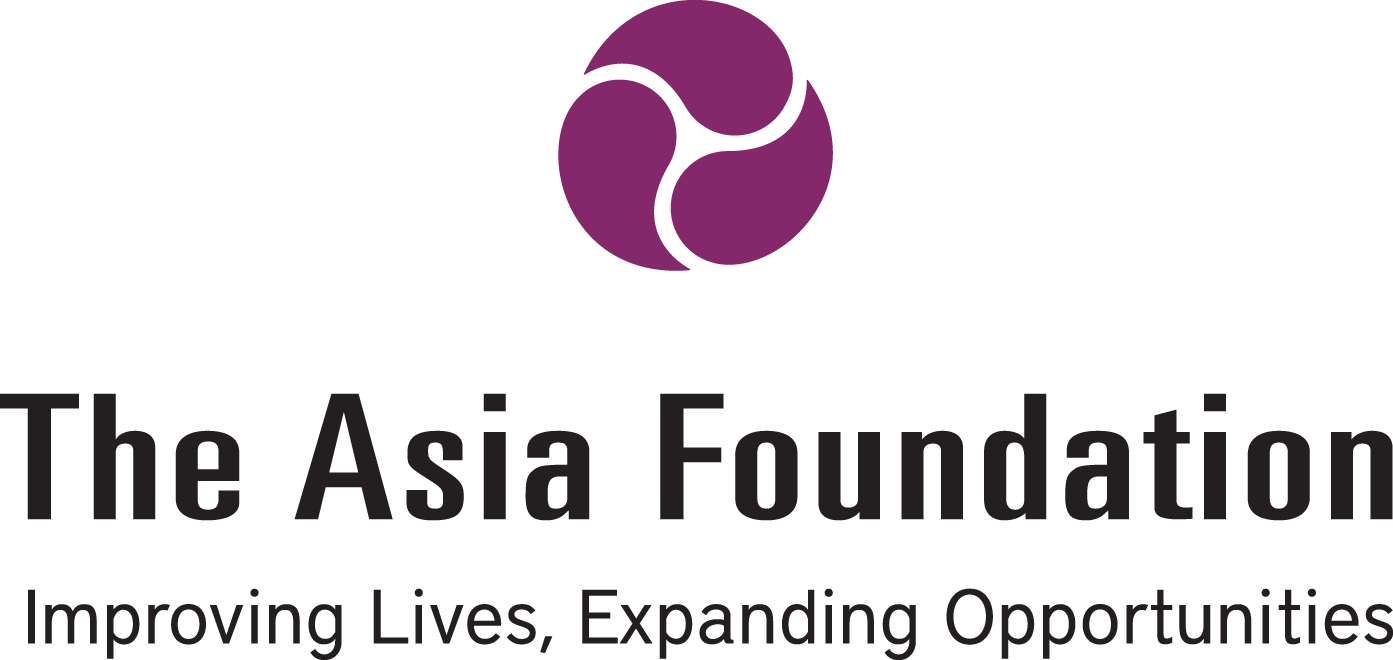





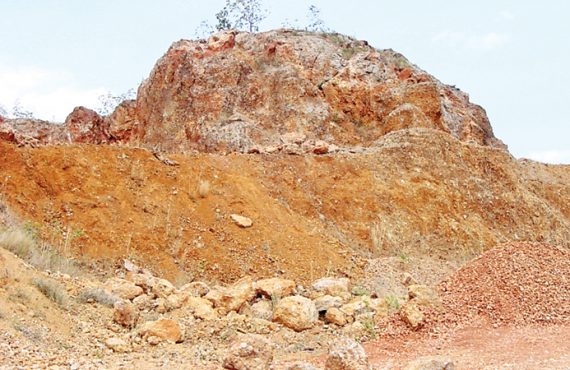


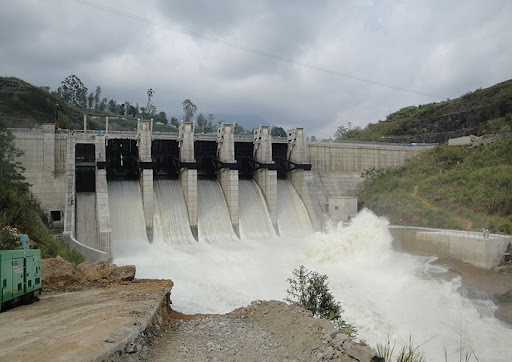


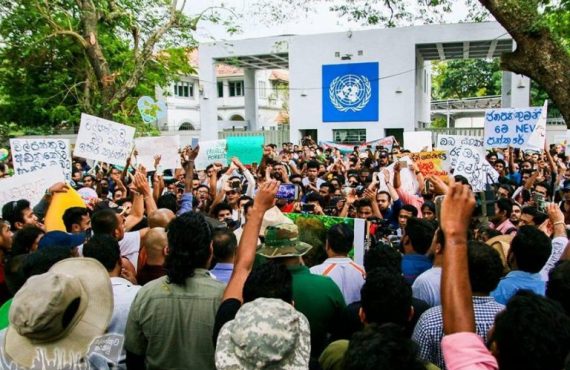

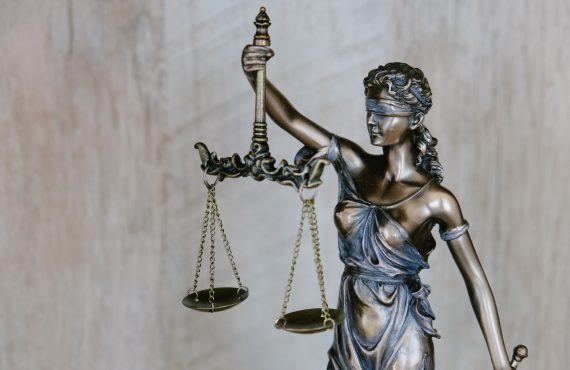





No comments yet.